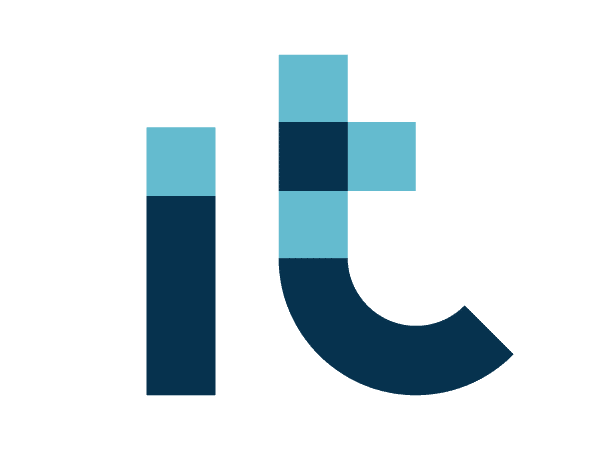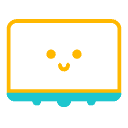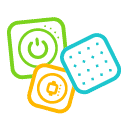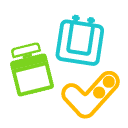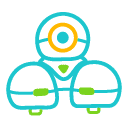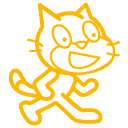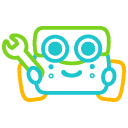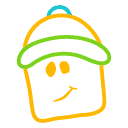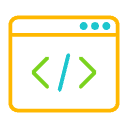Python

Through game development and algorithmic applications, progressing from beginner programming concepts to data processing, building practical Python programming expertise.
Age: 12 - 16
S1+
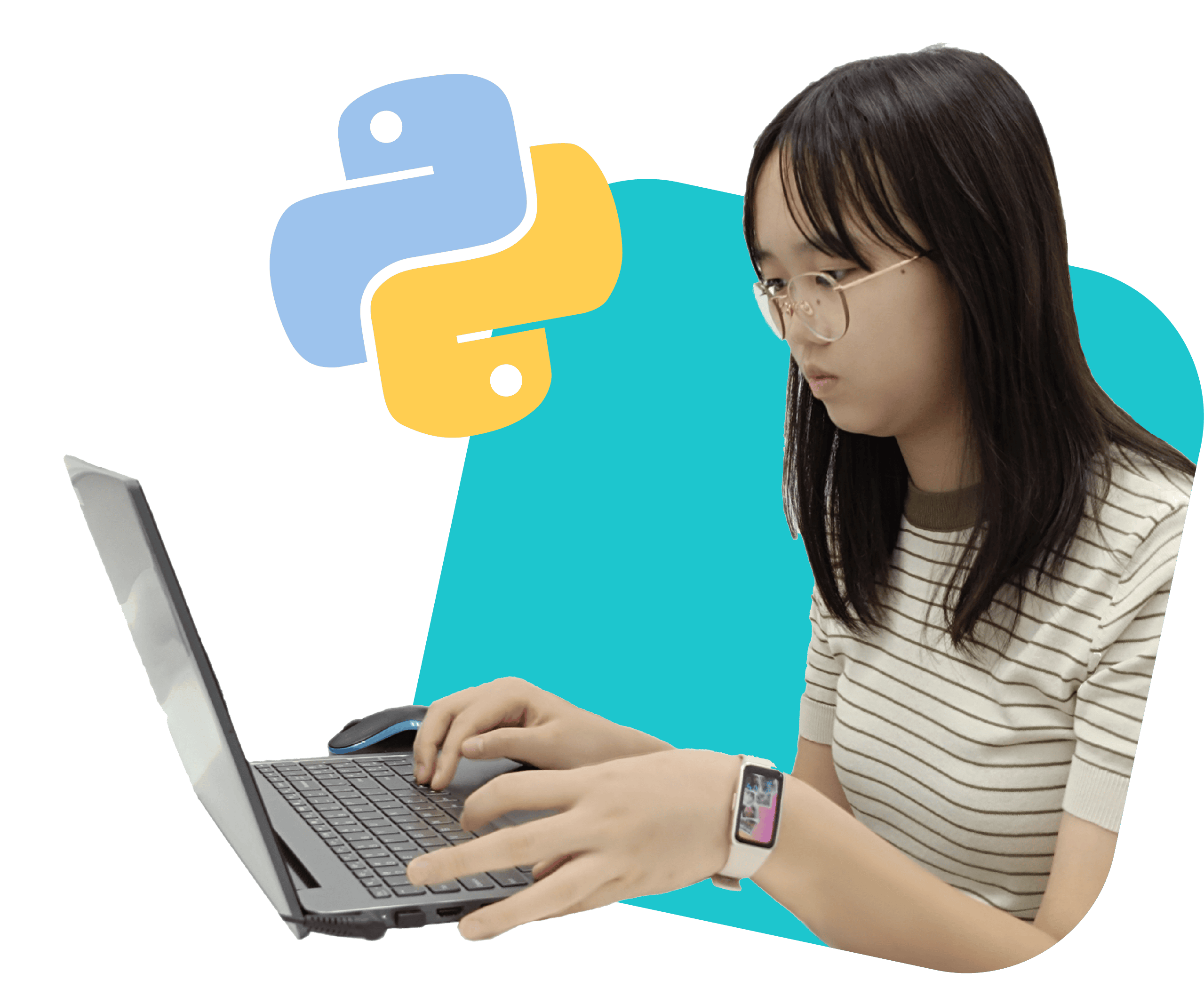
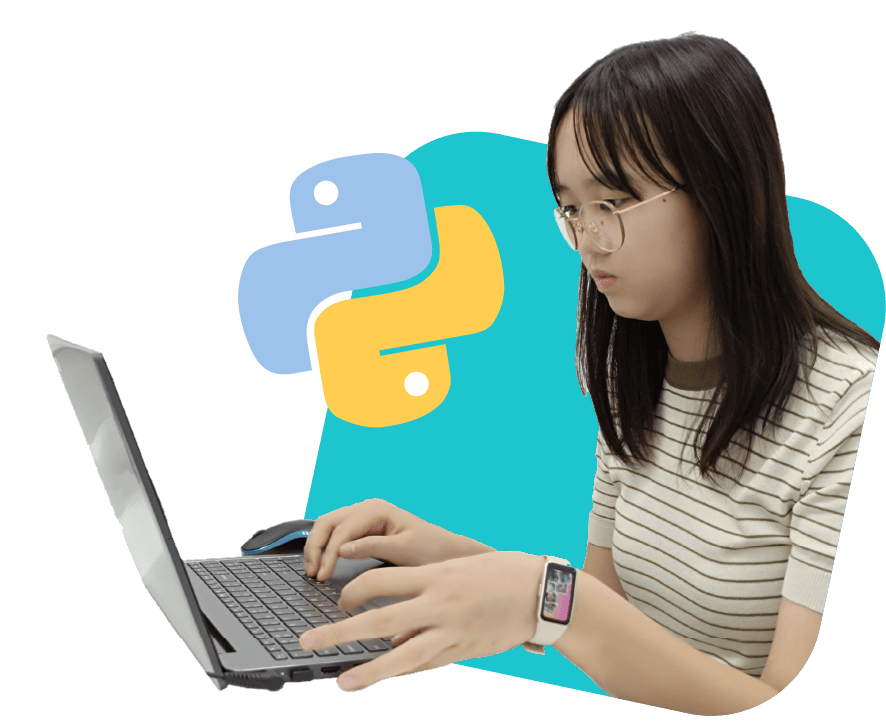
Course Description
Python course allows secondary school students to enter the real programming world, master the programming syntax which is commonly applied in the reality.
Through RoboCode's Python coding course, students learn to create games and practical applications using the Python programming language. Starting with Python's basic syntax, the course gradually introduces essential coding concepts and structures.
Students also learn advanced techniques in error handling and data manipulation to improve program stability and efficiency. In addition, the course involves creating classic real-time interactive games using PyGame and developing web applications using the Flask framework.
The Python course aims to enhance students' logical thinking and problem-solving abilities, and to help them apply what they've learned into practise by creating both fun and functional applications.

What Will Your Kids Learn?

- Master the coding structure, concepts, and syntax of Python to develop fun games
- Learn recursion, regular expression, and natural language processing (NLP) to enhance data processing capabilities, also apply object-oriented programming (OOP) to develop complex applications
- Use PyGame to create dynamic games and use Flask to develop comprehensive web applications connected with reality
RoboCode Uniqueness
Mastering Comprehensive Coding Skills to Create Diverse Projects
The course emphasizes enhancing students' text-based programming skills. Through creating various types of projects on different topics, students gradually master Python and learn to apply it flexibly in various practical scenarios.
Learning Progressively and Cultivating Independent Development Skills
Through multiple learning phases, the course gradually introduces coding techniques. Starting from console games to web applications, students steadily improve their independent development skills, creating innovative and unique projects.
Showcasing Learning Achievements and Enhancing Presentation Skills
Each level includes a presentation session that students explain their acquired knowledge and showcase their projects in front of the camera. Continuous practice helps improve their presentation skills and boost their confidence in public speaking.
Our Curriculum
Level 1 - Exploring Text-Based Programming and Mastering Basic Python Syntax
Start with Python's basic syntax, students gradually master a variety of common coding concepts and structures, as well as the entry-level of search and sorting algorithms to establish a foundation in text-based programming.
- Learn Python syntax and programming concepts such as lists, condition checking, and loop
- Apply search and sorting algorithms to solve practical programming problems
- Develop classic games Hangman by using random number generation and flow control concepts
Level 2 - Enhancing Python Programming Skills and Command Advanced Concepts
Delve into advanced concepts and improve attention to detail, focusing on improving program stability. Also, learn more practical data types, such as dictionary, to achieve more efficient and precise data storage.
- Master advanced Python concepts, including error handling, function scope, and application of modules
- Learn to access text files and handle entry-level data processing
- Develop console-based two-player battle games
Level 3 - Mastering Key Algorithms to Improve Data Handling Skills
Learn advanced algorithms to help students master key skills such as recursion, regular expressions, and natural language processing. Students also explore object-oriented programming to prepare for developing large scale applications.
- Master recursion algorithms, such as quicksort, to solve complex coding problems and deepen function understanding
- Use regular expression to accurately identify and parse valid email addresses, URLs, and phone numbers which improve data processing skills
- Apply natural language progressing (NLP) techniques to develop an article classification system, identifying keywords for sorting
Level 4 - Developing Real-Time Interactive Games Using PyGame
Learn to use the PyGame platform to develop various games. Students will fully grasp skills from character selection, control, sound effects, to scene management while applying object-oriented design principles to enhance game interactivity.
- Master the PyGame library to create dynamic game designs, using mouse and keyboard event handling to control characters
- Apply object-oriented programming concepts to design graphical user interface (GUI) applications, develop unique game features, and improve code organization and reusability
- Develop classic games Pac-Man, adding creative elements for a unique interactive game experience
Level 5 - Developing Real-World Web Applications Using Flask
Combine the content of the Web Programming course, students learn to use the Flask framework alongside three-tier architecture to create a fully functional web application platform, further connecting with real-world applications.
- Understand the complete web development cycle and systematically build web applications
- Familiarize with frontend data storage structures, such as cookies and sessions, applying them to functions like user registration and login
- Learn to handle web data requests using routing methods and develop a post-publishing system
Suitable for
12 to 16 year-old
Every Lesson
90 Minutes
Every Level
12 Lessons
(18 Hours in Total)
Class Size
1:4
(Maximum)
Course Fee
$6840 per Level
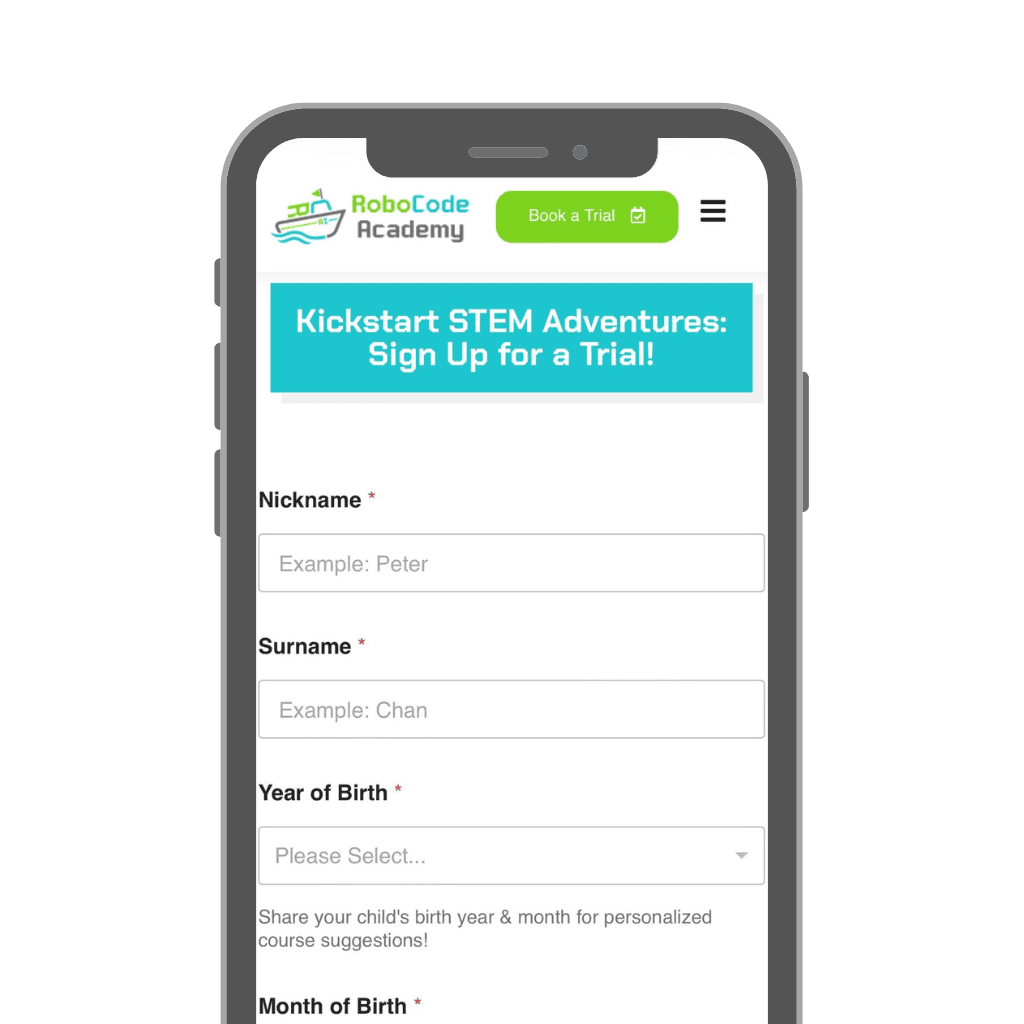
Kickstart Your Child's Journey to Innovation and Discovery
Frequently Asked Questions
Do students need to bring their own laptops to classes?
We encourage students to bring their own laptops to class, and the instructor will assist with installing the necessary software. If students do not have a laptop, we can also provide one for them.
Can parents get back students' completed works after class?
Sure, students can save their works to personal storage spaces such as Google Drive or USB flash drives.
Can students practice at home?
Yes, students can access, modify, and run their files on any computer that supports the relevant software.
Are there any additional fees apart from tuition for the course?
No, only tuition is required; there are no extra charges.
What if students need to take leave?
Parents should notify our staffs in advance. We will then arrange makeup class.
Courses You May Like...
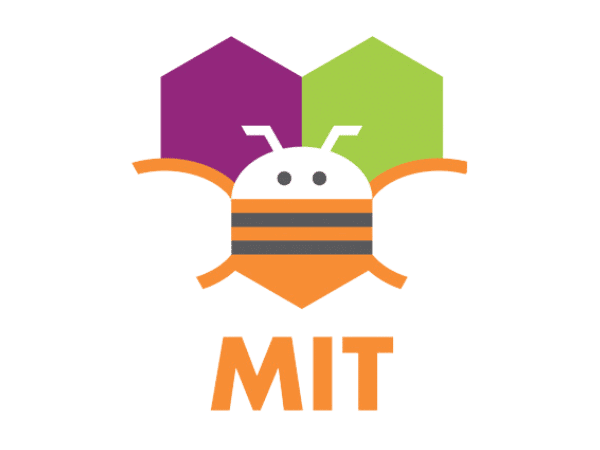
AppInventor
Age: 11 - 12
Integrate children's creativity with technology by developing real-world mobile applications in the AppInventor course. From basic design to advanced features, the course comprehensively enhances their programming skills through hands-on practice.

Web Programming
Age: 12 - 16
Master web development skills through hands-on practice, creating diverse interactive web applications and games, while enhancing data analysis and representation abilities to prepare for the digital future.
